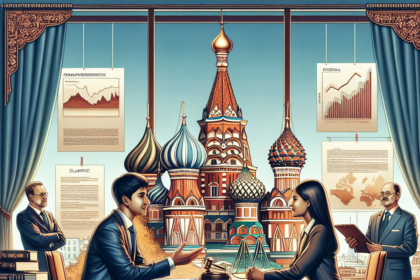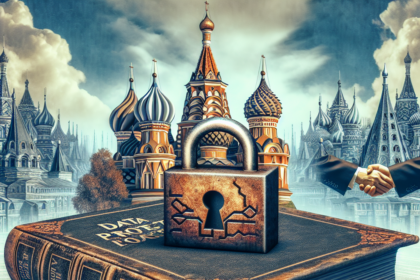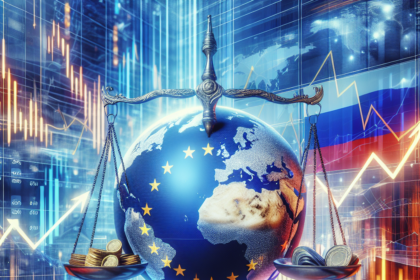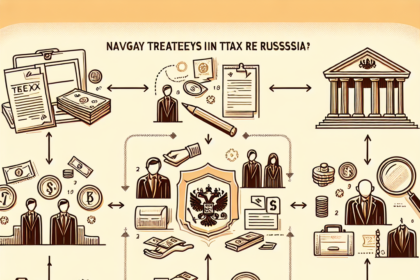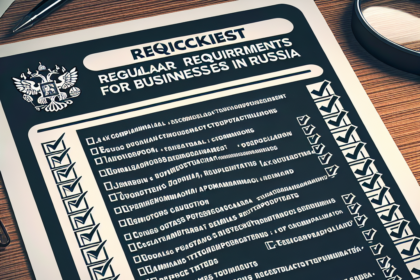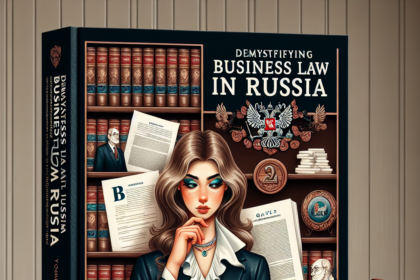Russia
Introduction
Russia’s legal system is a complex structure influenced by its historical evolution and socio-political dynamics. This comprehensive guide aims to provide an in-depth understanding of the key legal principles governing various aspects of law in Russia. By examining constitutional law, criminal law, civil law, administrative law, family law, labor and employment law, intellectual property law, and environmental law, stakeholders can navigate the Russian legal landscape effectively.
Chapter 1: Constitutional Law
1.1 The Constitution of Russia
The Constitution of the Russian Federation, adopted in 1993, is the supreme law of the country. It establishes the framework for the federal structure, the separation of powers, and the protection of fundamental rights and freedoms.
1.2 Fundamental Rights and Freedoms
The Constitution guarantees a range of fundamental rights and freedoms, including:
- Freedom of speech, assembly, and association.
- Right to life, liberty, and security of the person.
- Equality before the law and protection against discrimination.
- Right to a fair trial and legal representation.
1.3 Structure of Government
The Constitution outlines a federal system of government with a separation of powers among the executive, legislative, and judicial branches:
- Executive Branch: Led by the President and the Prime Minister, responsible for implementing laws and managing the state.
- Legislative Branch: Consists of the Federal Assembly, which includes the State Duma (lower house) and the Federation Council (upper house).
- Judicial Branch: Comprises various levels of courts, with the Constitutional Court being the highest judicial authority for constitutional matters.
Chapter 2: Criminal Law
2.1 The Criminal Code
The Criminal Code of the Russian Federation outlines criminal offenses and their corresponding penalties. It covers a wide range of offenses, including:
- Crimes against persons: Such as murder, assault, and kidnapping.
- Crimes against property: Such as theft, burglary, and fraud.
- Public order offenses: Such as bribery, corruption, and drug trafficking.
2.2 Criminal Procedure
Criminal procedure involves several stages:
- Investigation: Conducted by police and investigative committees, who gather evidence and interrogate suspects.
- Prosecution: Managed by the Public Prosecutor’s Office, which decides whether to bring charges and present the case in court.
- Trial: Conducted in criminal courts, with judges or panels of judges determining guilt and imposing sentences.
- Appeals: Defendants can appeal convictions and sentences to higher courts.
2.3 Rights of the Accused
The Russian Constitution and legal system provide several protections for individuals accused of crimes, including:
- Presumption of innocence.
- Right to be informed of charges.
- Right to legal representation.
- Right to a fair and public trial.
Chapter 3: Civil Law
3.1 Contract Law
Contract law governs agreements between parties. Key elements of a valid contract include:
- Offer and acceptance: Clear agreement between parties.
- Consideration: Something of value exchanged between parties.
- Intention to create legal relations: Both parties must intend for the contract to be legally binding.
- Capacity: Parties must have the legal capacity to enter into a contract.
- Legality of purpose: The contract’s purpose must be lawful.
3.2 Tort Law
Tort law addresses civil wrongs that cause harm to individuals or property. Major categories include:
- Negligence: Failure to exercise reasonable care, causing harm.
- Intentional Torts: Deliberate actions causing harm, such as assault or defamation.
- Strict Liability: Liability without fault, often applied in cases involving inherently dangerous activities.
3.3 Property Law
Property law governs the ownership, use, and transfer of land and personal property. It includes:
- Real Property: Land and buildings.
- Personal Property: Movable items and intangible rights.
- Easements and Covenants: Rights and obligations related to land use.
Chapter 4: Administrative Law
4.1 Role of Administrative Agencies
Administrative law governs the actions and decisions of government agencies. These agencies have authority in areas such as:
- Public services.
- Regulation of industries.
- Environmental protection.
4.2 Judicial Review
Judicial review allows courts to assess the legality of decisions made by administrative agencies. Grounds for review include:
- Lack of jurisdiction.
- Breach of procedural fairness.
- Errors of law or fact.
Chapter 5: Family Law
5.1 Marriage and Divorce
Family law in Russia regulates marriage, divorce, and related matters. Key aspects include:
- Marriage requirements: Legal age, consent, and registration.
- Divorce: Grounds for divorce, such as harm, desertion, or mutual consent, and procedures.
5.2 Child Custody and Support
Decisions regarding child custody and support are made in the best interests of the child. Factors considered include:
- Custody: Legal authority and responsibility for a child’s care.
- Access: Visitation rights for the non-custodial parent.
- Support: Financial obligations to support a child’s well-being.
5.3 Spousal Support
Spousal support, or alimony, may be granted in cases of divorce or separation to ensure that a spouse who is economically disadvantaged receives financial support. Factors influencing spousal support include:
- Duration of the marriage: Longer marriages may result in higher or longer-term support.
- Financial needs and resources: The financial situation of both spouses.
- Standard of living during the marriage: Maintaining a similar standard of living post-divorce.
- Contributions to the household: Including non-financial contributions like homemaking and childcare.
Chapter 6: Labor and Employment Law
6.1 Employment Contracts
Employment law in Russia regulates the relationship between employers and employees. Key aspects include:
- Employment Contracts: Must clearly outline job duties, salary, working hours, and other conditions.
- Termination: Specific grounds and procedures for lawful termination, including notice periods and severance pay.
6.2 Workers’ Rights
Russian labor law protects workers’ rights, ensuring:
- Fair wages: Compliance with minimum wage laws.
- Safe working conditions: Employers must provide a safe and healthy workplace.
- Work hours and leave: Regulations on working hours, overtime, and leave entitlements, including annual, sick, and maternity leave.
- Protection against unfair dismissal: Legal recourse for workers who are unjustly terminated.
6.3 Labor Disputes
Labor disputes may arise from issues such as wage disputes, working conditions, or wrongful termination. Resolution mechanisms include:
- Mediation: A neutral third party assists in resolving the dispute.
- Arbitration: An arbitrator makes a binding decision on the dispute.
- Litigation: Taking the dispute to court.
Chapter 7: Intellectual Property Law
7.1 Types of Intellectual Property
Russian law recognizes several types of intellectual property (IP):
- Trademarks: Protects brand names, logos, and slogans.
- Patents: Protects new inventions and innovations.
- Copyrights: Protects original works of authorship, such as books, music, and software.
- Industrial Designs: Protects the visual design of products.
7.2 Registration and Enforcement
To protect IP rights, owners must:
- Register: File applications with the Russian Federal Service for Intellectual Property (Rospatent).
- Enforce: Take legal action against infringement, which may include seeking injunctions and claiming damages.
7.3 International Treaties
Russia is a signatory to several international treaties that govern IP, including:
- Paris Convention: For the protection of industrial property.
- Berne Convention: For the protection of literary and artistic works.
- TRIPS Agreement: Agreement on Trade-Related Aspects of Intellectual Property Rights.
Chapter 8: Environmental Law
8.1 Environmental Protection
Environmental laws in Russia aim to protect natural resources and public health. Key legislation includes:
- Law on Environmental Protection: Regulates pollution control, waste management, and environmental impact assessments.
- Water Code and Forest Code: Governs the use and protection of water and forest resources.
8.2 Sustainability and Conservation
Sustainability laws promote the conservation of resources and biodiversity. Key initiatives include:
- Climate Change Mitigation: Efforts to reduce greenhouse gas emissions.
- Resource Management: Sustainable use of water, forests, and fisheries.
- Biodiversity Conservation: Protecting ecosystems and endangered species.
8.3 Compliance and Enforcement
Environmental compliance is monitored by the Ministry of Natural Resources and Environment, which has the authority to:
- Conduct inspections.
- Issue fines and penalties for non-compliance.
- Enforce remediation measures.
Chapter 9: Financial and Securities Law
9.1 Banking and Finance
Financial regulations govern banking activities, including:
- Banking Law: Regulates the establishment and operation of banks.
- Central Bank of Russia: Oversees monetary policy and banking regulations.
- Anti-Money Laundering (AML): Measures to prevent money laundering and terrorist financing.
9.2 Securities Regulation
Securities laws protect investors and maintain fair markets. Key components include:
- Securities Market Law: Regulates the issuance and trading of securities.
- Federal Service for Financial Markets (FSFM): Enforces securities regulations and oversees the stock market.
9.3 Compliance and Reporting
Financial institutions and publicly traded companies must:
- Disclose financial information: Regular reporting of financial statements.
- Adhere to AML regulations: Implementing policies to detect and prevent financial crimes.
- Comply with investor protection laws: Ensuring transparency and fairness in financial dealings.
Chapter 10: Real Estate and Property Law
10.1 Property Ownership
Property laws govern ownership and use of real estate, including:
- Title Registration: Ensures legal ownership and clear title to property.
- Land Use Regulations: Zoning and development controls.
10.2 Leasing and Tenancy
Rules for renting property cover:
- Residential Tenancies: Rights and obligations of landlords and tenants.
- Commercial Leases: Terms and conditions for business premises.
10.3 Real Estate Transactions
Real estate transactions must comply with legal requirements, including:
- Sales Agreements: Detailed contracts outlining the terms of the sale.
- Due Diligence: Property inspections and verification of title.
- Registration: Recording the transaction with the appropriate government authority.
Chapter 11: Family and Inheritance Law
11.1 Family Law
Family law covers marriage, divorce, child custody, and support. Key aspects include:
- Marriage Requirements: Legal age, consent, and registration.
- Divorce: Grounds for divorce, such as harm, desertion, or mutual consent, and procedures.
- Child Custody and Support: Decisions made in the best interests of the child.
11.2 Inheritance Law
Inheritance laws govern the distribution of a deceased person’s estate, including:
- Wills and Estates: Validity and execution of wills.
- Intestate Succession: Distribution when there is no will.
- Probate Process: Administration of estates.
Chapter 12: Immigration Law
12.1 Immigration Categories
Russia offers various immigration pathways, including:
- Work Visas: For foreign nationals employed by Russian companies.
- Residency Permits: For long-term residents and investors.
- Asylum and Refugee Status: Protection for individuals fleeing persecution.
12.2 Permanent Residence and Citizenship
Processes for obtaining permanent residence and citizenship include:
- Investment Programs: Residency or citizenship through significant investment in Russia.
- Naturalization: Requirements include residency, language proficiency, and integration into Russian society.
Chapter 13: Technology and Privacy Law
13.1 Data Protection
Privacy laws protect personal information. Key legislation includes:
- Personal Data Law: Governs the collection, use, and disclosure of personal information.
- Cybersecurity Law: Ensures the security of information systems and data.
13.2 E-Commerce Regulations
Laws cover:
- Online Contracts: Validity and enforceability of digital agreements.
- Consumer Protection: Safeguards for online shoppers.
- Electronic Transactions: Legal recognition of electronic signatures and documents.
13.3 Intellectual Property in Technology
Special considerations for IP in technology include:
- Software Patents: Protection for computer programs.
- Digital Rights Management: Mechanisms to prevent unauthorized use of digital content.
Chapter 14: International Trade Law
14.1 Trade Agreements
Russia is a party to several trade agreements, including:
- Eurasian Economic Union (EAEU): Facilitates trade among member states.
- World Trade Organization (WTO): Governs international trade rules and dispute resolution.
- Bilateral Trade Agreements: Specific agreements with individual countries.
14.2 Import and Export Regulations
Regulations govern the import and export of goods and services, including:
- Customs Duties: Taxes on imported goods.
- Trade Sanctions: Restrictions on trade with certain countries.
- Compliance with International Standards: Ensuring products meet global quality and safety standards.
14.3 Trade Disputes
Resolution through:
- WTO Dispute Settlement: Mechanisms for resolving international trade disputes.
- Bilateral Negotiations: Direct discussions between countries to resolve trade issues.
Conclusion
Understanding and navigating the various branches of law in Russia is essential for individuals, businesses, and legal practitioners. From constitutional and criminal law to family and environmental law, each area plays a vital role in maintaining order, protecting rights, and promoting justice. By staying informed and compliant with Russian laws and regulations, stakeholders can ensure legal compliance and contribute to a fair and just society.
FAQs
- What is the supreme law of Russia?
- The Constitution of the Russian Federation is the supreme law, providing the framework for governance and legal systems.
- What rights are protected under the Russian Constitution?
- Rights include freedom of speech, right to life, liberty, and security, equality before the law, and the right to a fair trial.
- How does Russia protect intellectual property?
- Through laws governing trademarks, patents, copyrights, and industrial designs, with enforcement by the Russian Federal Service for Intellectual Property (Rospatent).
- What are the key aspects of employment law in Russia?
- Employment standards, workplace health and safety, and resolution of employment disputes.
- What are the requirements for marriage and divorce in Russia?
- Legal age, consent, registration for marriage, and grounds for divorce such as harm, desertion, or mutual consent.
By understanding these aspects of Russian law, individuals and businesses can better navigate the legal landscape and ensure they operate within the bounds of the law.




